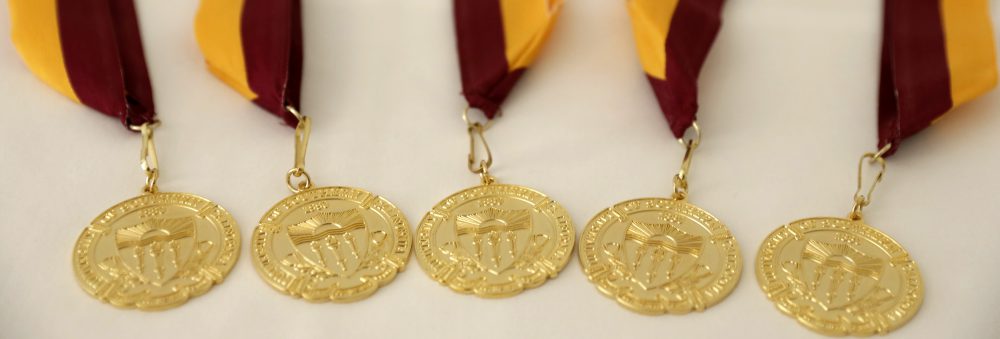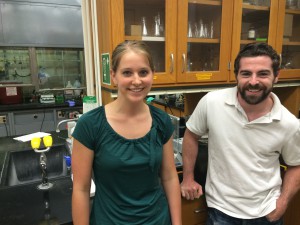Top 10 Fellowship and Scholarship Opportunities for International Students
American Association for University Women – International Fellowships
http://www.aauw.org/what-we-do/educational-funding-and-awards/international-fellowships/international-fellowships-application/
International Fellowships are awarded for full-time study or research in the United States to women who are not U.S. citizens or permanent residents. Both graduate and postgraduate studies at accredited U.S. institutions are supported. Applicants must have earned the equivalent of a U.S. bachelor’s degree by September 30, 2013, and must have applied to their proposed institutions of study by the time of the application. Up to five fellowships are renewable for a second year. Recipients are selected for academic achievement and demonstrated commitment to women and girls. Recipients return to their home countries to become leaders in business, government, academia, community activism, the arts, and sciences.
Application due December 1st.
American Scandinavian Foundation
http://www.amscan.org/study_scandinavia_details.html
The American-Scandinavian Foundation (ASF) offers fellowships (up to $23,000) and grants (up to $5,000) to individuals to pursue research, study or creative arts projects in one or more Scandinavian country for up to one year. The number of awards varies each year according to total funds available. Awards are made in all fields. Applicants must have a well-defined research, study or creative arts project that makes a stay in Scandinavia essential. Applicants must be United States citizens or permanent residents and have completed their undergraduate education by the start of their project in Scandinavia. Team projects are eligible, but each member must apply as an individual, submitting a separate, fully-documented application. First priority will be given to applicants who have not previously received an ASF award. Only in exceptional cases will a third award be considered
Application due November 1st.
Asian Development Bank (ADB) – Japan Scholarship Program
http://www.adb.org/site/careers/japan-scholarship-program/main
For citizens of ADB’s developing member countries to pursue postgraduate studies in economics, management, science and technology, and other development-related fields at participating academic institutions in the Asian and Pacific Region. The ADB-JSP provides full scholarships for one to two years.
Association for Women in Science Educational Foundation
http://www.bibsocamer.org/fellows.htm
Several fellowships available, all of which support bibliographical inquiry and research in the history of the book trades and in publishing history. Eligible topics may concentrate on books and documents in any field, but should focus on the book or manuscript (the physical object) as historical evidence.
Applications due December 15th.
National Academies Fellowships
http://www.nationalacademies.org/grantprograms/index.html
The National Academy of Sciences, National Academy of Engineering, Institute of Medicine, and National Research Council offer several fellowships in science, engineering, and medicine. Information on eligibility guidelines and application deadlines is available on specific programs’ websites. The Fellowships Office (FO) of the National Academies administers predoctoral, postdoctoral, and senior fellowship awards on behalf of government and private/foundation sponsors; these fellowship awards play an important role in the career development of doctoral and postdoctoral researchers and scholars for the academic, federal, industrial and international workforce. Current opportunities can be found on the above listed website.
Deadlines vary.
Christine Mirzayan Science & Technology Policy Graduate Fellowship Program
http://sites.nationalacademies.org/PGA/policyfellows/index.htm
This fellowship is designed to engage graduate science, engineering, medical, veterinary, business, and law students in the analysis that informs the creation of science and technology policy and to familiarize them with the interactions of science, technology and government.
Applications are due the fall before the session begins.
International Dissertation Field Research Fellowships
http://www.ssrc.org/fellowships/idrf-fellowship/
The Mellon International Dissertation Research Fellowship (IDRF) offers nine to twelve months of support to graduate students in the humanities and humanistic social sciences who are enrolled in PhD programs in the United States and conducting dissertation research on non-US topics. Eighty fellowships are awarded annually.
Applications due November 5th.
Jack Kent Cooke Graduate Scholarships
http://www.jkcf.org/scholarships/graduate-scholarships/
The Foundation’s Dissertation Fellowship is for up to $25,000 for advanced doctoral students who are completing dissertations that inform the Foundation’s mission: advancing the education of exceptionally promising students who have financial need. To be eligible, candidates must demonstrate superior academic achievement, have successfully defended their dissertation proposals, and be enrolled full-time in a US graduate degree program.
Application deadline is February 4th.
Josephine de Karman Scholarships
http://www.dekarman.org/
$16,000 scholarship to support either the final year of study for juniors or for Ph.D. candidates with ABD status. DeKarman fellowships are open to students in any discipline, including international students, who are currently enrolled in a university or college located within the United States. Only candidates for the PhD who will defend their dissertation by June 2015 and undergraduates entering their senior year (will receive bachelors degree in June 2015) are eligible for consideration. Postdoctoral and masters degree students are not eligible for consideration. Special consideration will be given to applicants in the Humanities.
Application due January 31st.
Spencer Foundation Dissertation Fellowship
http://www.spencer.org/content.cfm/fellowship-awards
Candidates for the doctoral degree at a graduate school within the United States are eligible.


 by Adam Feinman
by Adam Feinman


